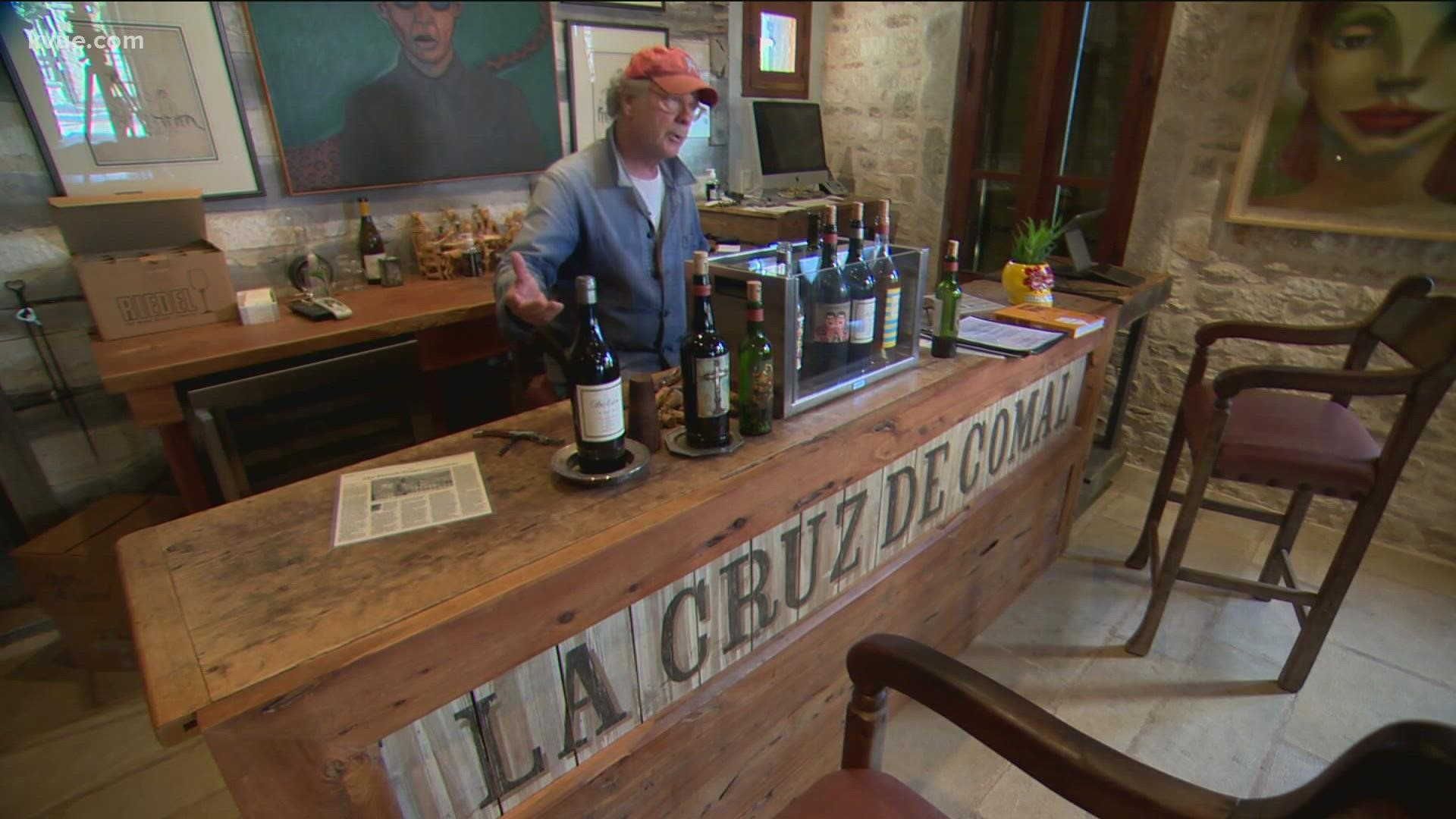AUSTIN, Texas — Just four years ago, in 2017, Texas had 352 wineries that ranked fifth in the country. Now it's home to 547.
According to the National Association of American Wineries, the state's wine industry brought more than $13 billion to our state's economy in 2017 and created $60,000 jobs.
The industry has only grown since then, which is why we're taking a look at the world of Texas wine.
In the Central Texas alcohol industry, wine is something this area has become known for. To learn more, KVUE headed to a ranch in Driftwood.
"I had a vineyard before I had a winery, obviously," said Gary Elliott, who owns Driftwood Estate Winery.
His winery is one of the older ones in the region, but Elliott knows the history of Texas wine goes much deeper.
"Everybody says, you know, they can't understand why Texas has wineries at all because everybody thinks California, Washington, Oregon, New York," Elliot said. "But they say one of the first vineyards ever planted in the country was in El Paso. That was by the Spanish missionary missionaries in the 1600s."
Fast forward to now, the industry has grown dramatically over the past two decades.
"When I started out, there were probably 35 wineries in the whole state. Now there's probably between 400 and 500. It's just exploded," Elliot said.
So, how does someone start a winery in a region that wasn't known for it? You start by learning from people with experience.
"You know, you can't just start out 100% Texas grapes, especially back when I started, because there weren't Texas grapes available," Elliot said. "So, you find a lot of the wineries are getting grapes from California. For some people, that's fine because they were buying California wine anyway."
But now, he gets all Texas grapes, most of which he grows himself.
"You want to grow something that'll do well in your climate, and the climate is so different that we harvest a month earlier here than they do up in the Texas High Plains," he explained while walking through his vineyard. "If you want to get real Texas wine made with Texas grapes, there are a number of wineries now that do 100% Texas grapes in the wines."
But not every winery grows its own grapes.
"We officially opened the tasting room in July of 2010," said Nate Pruitt, the owner of Bell Springs Winery in Dripping Springs.
Bell Springs gets its grapes from other places, originally California, where Pruitt grew up.
"I grew up on the central coast," he explained. "You saw that growth. There were about 13 wineries or so when I was in high school."
When he moved to Texas, he realized it could be done here.
"They're starting to realize that we're, we're a powerhouse; we're somebody that is making great wine and we have a really good experience and lots of really unique geography, especially out in the Hill Country here, for different wine settings," he said.
Connection with the land
But for some, it's the connection to the land the grapes are from that truly makes their wine special.
"Wines are like people, and grapes are like people – some do better than others," said Lewis Dickson, a former lawyer turned natural winemaker who owns La Cruz de Comal Winery.
His vineyard and winery were started on his ranch on the outskirts of New Braunfels.
"I've been making one since 2001 here in Texas," he said. "But basically a natural one has nothing added to it and nothing is taken out. We don't add yeast. We rely on the native wild yeast to do spontaneous fermentation."
It's an older style and requires different levels of care after it's bottled.
"I'm not saying necessarily that produces a better wine," Dickson said. "I let people contemplate that, but it's the purest rendition of a wine that you can find."
It's a style that's not as common, but it's what he wants to do.
"It doesn't interest me just to make good wine. No matter how good it might be, if the wine is not a teacher, if it doesn't show you something unique, then I don't have that much interest in it, particularly," he said.
That interest means he makes only 400 to 500 cases of wine a year, solely dependent on how his grapes are. It's that connection to the land he's on that he hopes others in Texas start to make.
"I would like to see Texas become more multi-regional. I would like to see East Texas. I would like for people to experiment and find out what they can do with reasonable dependability," he said.
If you want to read and watch more stories like this, KVUE has also explored the booming Texas whiskey distilling and beer brewing industries.
PEOPLE ARE ALSO READING:

